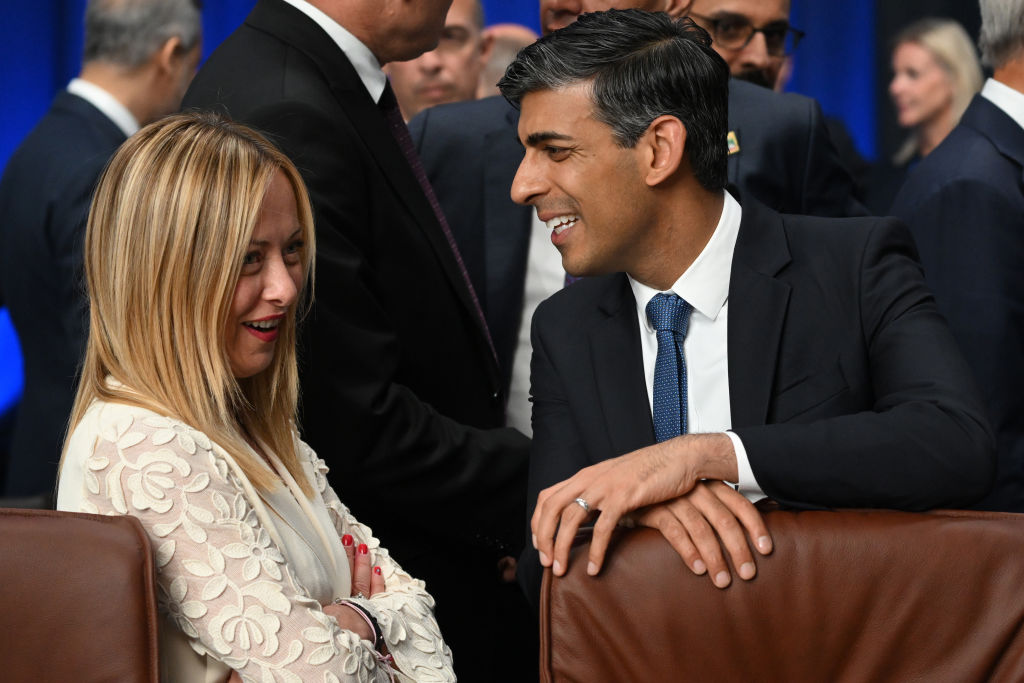Never let it be said that modern UK governments are unaware of the world around them and their place in it. Never suggest that they are fixated, with an onanism of horrific proportions, on matters purely domestic.
The world today is at its most unsettled since the end of the Second World War. Across the globe right now there are over 20 separate conflicts which kill over 1000 people a year. They bleed into one another and are getting ever closer to both our nation and our neighbourhood.
They are starting to bleed into our own complacent societies. Mass immigration has brought partisans of those multiplying conflicts into our towns and cities. There has been serious talk of nuclear strikes and there is more and worse to come on the horizon. Only this week China announced a 7 per cent increase in its own, already massive, military budget.
Into these gathering storms – and with a prospect of a new American President voicing the frustration of a country whose taxpayers have granted us Europeans half a century of peace and the freedom to be weak – Donald Trump threw in his comments about letting Putin’s Russia deal with Europe’s non-payers as he sees fit.
But why should the US continue to subsidise our contemptuous arrogance? If we sign a defence treaty, are we not also bound by its terms? Apparently not, though NATO requires its members to pay 2 per cent of their GDPs on defence, last year only 11 out of the 30 managed it. The rest do not: France (paying 1.90 per cent), Montenegro (1.87 per cent), North Macedonia (1.87 per cent), Bulgaria (1.84 per cent), Croatia (1.79 per cent), Albania (1.76 per cent), the Netherlands (1.70 per cent), Norway (1.67 per cent), Denmark (1.65 per cent), Czech Republic (1.50 per cent), Portugal (1.48 per cent), Italy (1.46 per cent), Canada (1.38 per cent), Slovenia (1.35 per cent), Turkey (1.31 per cent), Spain (1.26 per cent), Belgium (1.13 per cent) and Luxembourg (0.72 per cent).
Germany claims that this year it will for the first time since 1991, but its figures are classified – so who knows. Jens Stoltenberg, the outgoing Secretary General of NATO, claims that next year 18 countries will manage the 2 per cent. This increase is only in the light of the continued war in Ukraine and is understandably concentrated amongst the small nations closest to Russia.
And the UK? The UK has historically always managed to hit the target, but year on year that proportion is going down. In 1991 it was 4.3 per cent, it is now at 2.07 per cent.
This week the governing Conservative Party has produced its last budget before the next general election. The questions of tax and spend, of benefits and allowances, have grabbed the headlines. What hasn’t is the way in which one department, yet again, has been left behind. Defence.
Last year (2023-24) the amount the UK spent on defence was £35 billion; the plan for the coming year is to cut it by over £2bn down to £32.8, a drop that put the UK perilously close to the 2 per cent target.
The simple reason for this is the essentially unserious nature of British politics; there is a culture of administrative infantilism. Defence and war are intensely serious matters, but Whitehall, over the decades since the fall of the Berlin Wall, has seen the defence budget and importantly defence procurement as a pocket to be picked, rather than a key aspect of our national life and governmental spending.
If a politician does talk or think about defence they do so only in terms of cyber warfare, or drones, or AI, or other sexy buzz words they picked up from some zeitgeist mongering publication. What they do not do, because they cannot see the coins running along the gutters of their own constituencies, is take the defence of the realm seriously. To most, the armed forces are a nice photo op on Armistice Sunday and that’s just about it,
So fixated are they on denigrating the country and culture, they act surprised that young men, (and it mostly is young men) are no longer minded to take up the sheer hard work and commitment that it takes to train and live in the armed forces. The stresses and strains that it puts on domestic life are ignored. There is the simple fact that they are required to risk their life as a matter of course, on the say so of Westminster’s green benched collective of charlatans and social workers.
Retention and recruitment across the services is diabolical, and cutting the defence budget, when hostile forces appear across the world and upon our own streets, is a recipe for future disaster.
No Teddy Roosevelt we. “Shout loudly, but carry a toothpick” should be our motto.






Is a commitment to climate orthodoxy a prerequisite to working for the European Central Bank? The Frankfurt institution has tied itself in knots over the true meaning of diversity